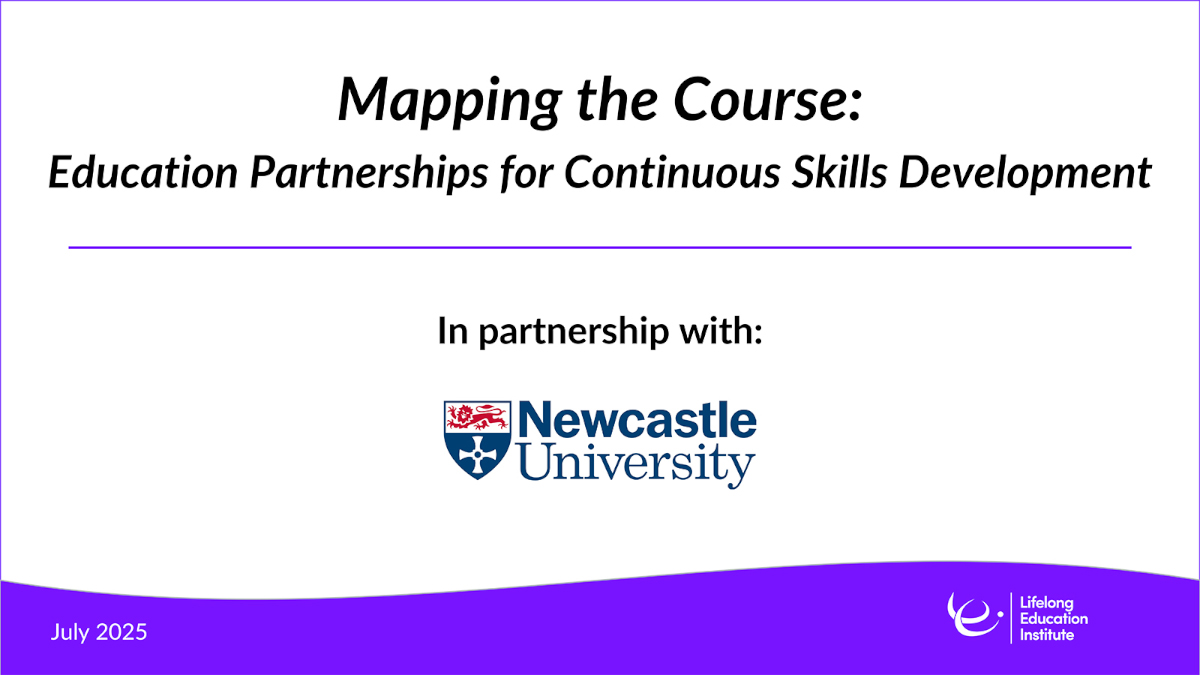How Can Employers Help to Improve Apprenticeship Completions?

I’m delighted to be involved in the St Martin’s Group of Apprenticeship Employers, Learning Providers and EPAOs, who have recently commissioned a report into “Apprenticeship Outcomes and Destinations” in partnership with the Learning and Work Institute.
The report, whose launch attracted a packed audience comprised of a wide range of people interested in apprenticeships, contains the largest sample of apprentices who did not complete their programme and provides a uniquely detailed exploration of their characteristics and destinations.
Unsurprisingly, the report concludes that apprentices who do complete, reap the most benefits through increased job opportunities, promotions and salary uplifts.
The most common reasons cited by respondents for withdrawing from their apprenticeship related to a negative experience on the apprenticeship programme including lack of support from their employer (37%).
Employers are not measured on completions; it is the Learning Provider who takes the hit when an apprentice drops out prior to EPA or even earlier.
So, what could employers do to improve the situation?
Or, one could ask, are employers concerned if an apprentice does not complete formally, so long as they feel they have received the relevant training for their occupation? It’s a question worth exploring. After all, significant effort is required in preparing an apprentice for EPA and that can take their focus away from their day job.
At IBM, we are very proud of our high completion rates which are way above the national average. We take apprenticeship completion very seriously, regardless of whether the apprentice goes through our employer provider route or is with a learning provider.
So, here are some suggestions, based on our own experience of how employers could help to influence and contribute to higher completions: surely a win/win for everyone concerned.
Recruitment and Induction:
At IBM, we set expectations during Induction. We make the link between apprentice completion and the apprentice’s job at IBM (becoming occupationally competent). The wording is now included in the apprentice’s contract. We also explain what is expected of them as an apprentice and give them tools to understand and manage time management and prioritisation. We show them how to write a reflection and invite a panel of current apprentices to describe how they manage their training.
Match the job role to the apprenticeship:
It’s really important that the apprentice’s day job matches the Knowledge, Skills and Behaviours (KSBs) of their apprenticeship Standard. We ensure that we know the standard well so we can assess this during regular 1-1 reviews and if there is a serious mismatch, we facilitate a role move. We also advocate for apprentices – both internally (e.g. support for time away from projects to support their learning, exams, study leave etc.), or with the learning provider (e.g. to push back on quality of teaching, support in assessments, especially EPA).
Scheduling regular reviews with apprentices is particularly helpful.
The regularity of reviews minimises the amount of time apprentices have to potentially under-perform or fall behind. This forces us to have a detailed understanding of their role development, learning progress and evidence against the KSBs. Some apprentices require support when they write their portfolios. We also prompt them during our quarterly reviews of any new evidence they might not have thought of. This gets them into a habit of looking out for evidence throughout their apprenticeship. We help with insight into different types of evidence which might be presented – enabling the apprentice to produce a much richer, diverse, more complete portfolio – this can be especially important when trying to find a way to present secure or sensitive client information. Where apprentices are falling behind, we aim to act before the issue escalates using our own robust performance management systems.
Safeguarding and Pastoral Care:
We have our own well-being community for early professionals, including a peer support network. All our managers are mental health first aiders. We have created peer support teams who meet to discuss how they can evidence the KSBs. Our Apprentice Community is very active and creates a ‘campus’ feel to increase engagement and the sense of belonging. Individual buddies are also great for 1-1 support at the start of an apprenticeship. If things aren’t going well, apprentices have various feedback mechanisms such as our internal apprentice survey – so they know their voice will be heard and action taken.
Relationship with Learning Provider:
It’s very important to have astrong relationship management with the provider, both in holding them to account and also in discussing apprentices’ progress in regular tripartite meetings. It really is a three-way process. We have noticed that we have often been the only employer present on some degree apprentice course presentations, so have provided constructive feedback on presentations not only for our own apprentices but also to support students from other organisations.
Support with End Point Assessment (EPA):
We start to talk about their EPA at least six months prior to Gateway. We review their portfolios by pointing out which scenarios or work successes should be written up in a reflection and mapped. We rehearse their EPA presentation or interview to get the structure and ‘mandatory’ parts in such as their own personal introduction, then to get the time right and know the material well. One HEI even asks us to assess their work!
I realise that IBM is a large employer and all this support can take up management time and resource. However, there are organisations such as the Association of Apprentices whose mission is to provide “the social and broader elements often missing from apprenticeship programmes, with access to advice and guidance which supports life-long career development and a lifetime of professional networks.”
By working together, we can take apprenticeships in this country to a new level of success.












Responses